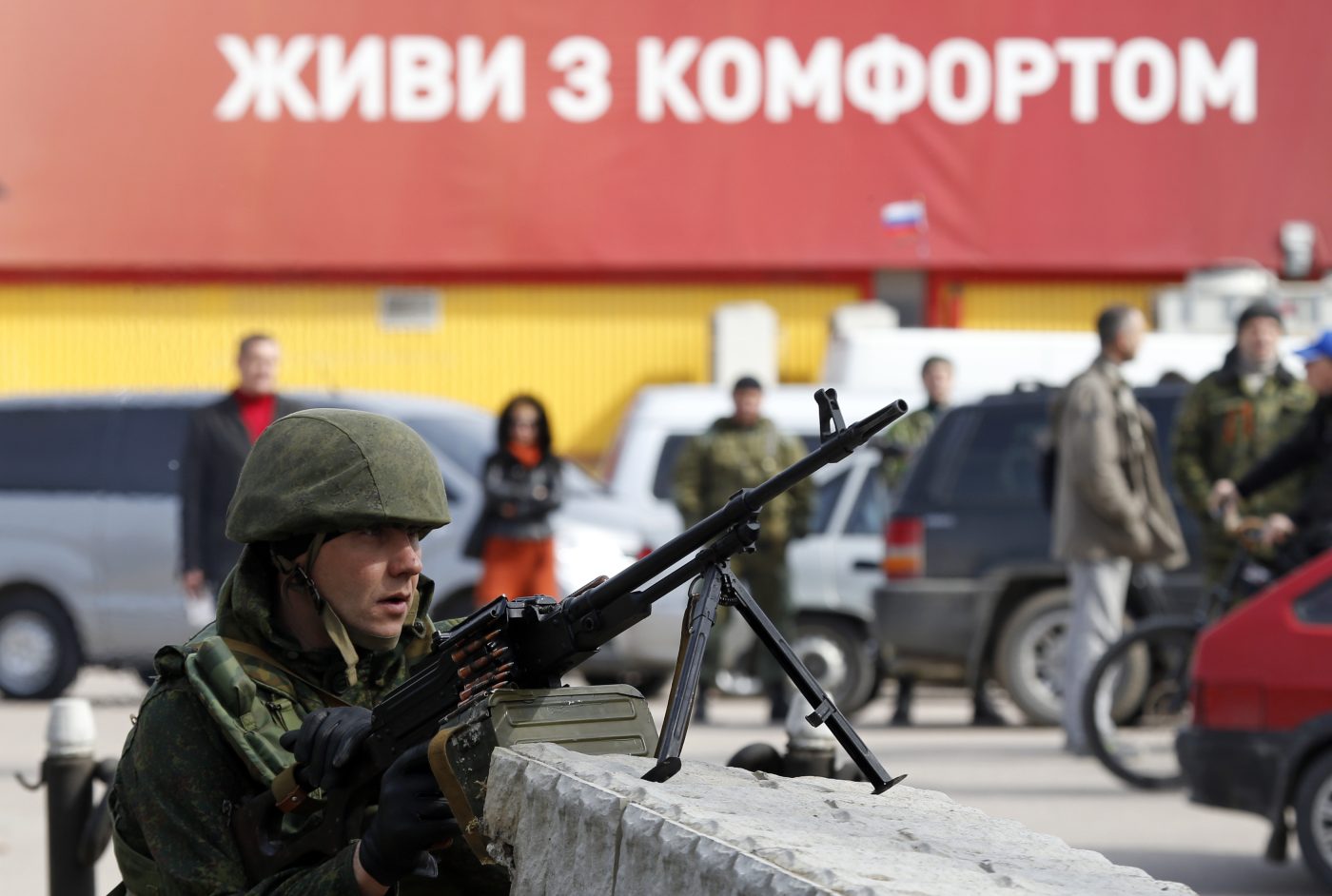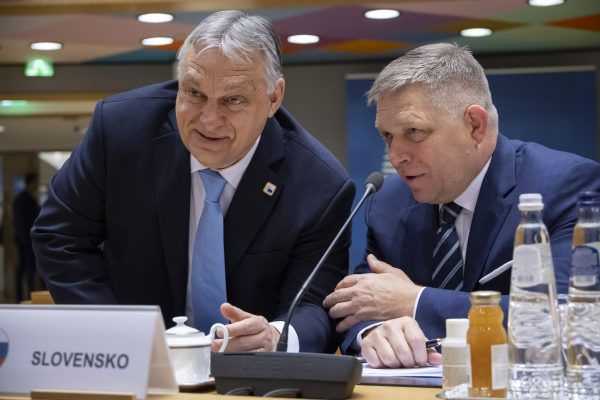Six months ago, right after the liberation of Kherson Oblast, I received a message from a friend in Crimea asking what would happen when Ukraine’s armed forces enter the peninsula. “Will I be considered a collaborator and prosecuted?” she asked.
For the 34-year-old woman, a single mother who runs a small business, it was a vital question. I replied that she shouldn’t worry as she was not collaborating with the Russian authorities and is a victim of the illegal annexation and all its consequences.
But her anxiety nags at me. How many people on the peninsula pine for the liberation of Crimea but fear its consequences? They want it because they will finally be free. They are scared because they don’t know what it might mean for them after nine years of occupation.
The fear is in large part due to Russian propaganda, which systematically works across the occupied territories to demonize Ukrainians and their armed forces. Not everyone is resistant to such misinformation, or able to check stories in other media outlets.
Ukraine adopted its first strategy for the de-occupation of Crimea in March 2021, with 97 different steps toward a free peninsula. In April 2023 the plan was updated. It was an important signal that Kyiv is focused on liberation and had a strategy. For international partners, it also sent a message that Ukraine not only wanted help and assistance but was actively working on its mission.
One of the practical steps in the strategy is the provision of public services when Ukraine regains control.
“At the beginning of 2014, there were more than 16,000 civil servants in Crimea, more than 12,000 police officers, almost 3,000 employees of the State Emergency Service, approximately 1,500 employees of the State Security Service, and the same number of employees in the prosecutor’s office — all together, more than 30,000 people,” said Tamila Tasheva, the Permanent Representative of the President of Ukraine in the Autonomous Republic of Crimea.
“At first we will not need that many, but we are still talking about thousands of people and we are preparing for this in different fields,” she said in emailed responses to questions. “The Cabinet of Ministers approved the formation of a personnel reserve for the de-occupied territories, and the National Agency on the Civil Service is preparing short-term training courses for them.”
This year, Taras Shevchenko National University of Kyiv will start recruiting for master’s programs focused on governance in post-war territories. The programs will cover various aspects of management, security, socio-cultural issues, and the economy.
“Two months ago ‘ProKrym’, an online course, was launched and almost 15,000 people have already received a basic education about Crimea, its history, culture, and the peculiarities of the region,” Tasheva said.
The course, which was designed for Ukrainian civil servants and local government employees, consists of 10 lectures about the history of the peninsula, the life of Crimeans under occupation, transitional justice, and strategies for de-occupation and reintegration.
The questions about public services in Crimea and those about collaboration with the Russian occupation go hand in hand and are being discussed in detail in Ukraine and beyond. Can those who stayed in Crimea continue to work as teachers, doctors, or other public servants after Ukraine regains control?
In March 2022, just a few days after the full-scale Russian invasion, Ukraine’s parliament passed a law adding a new article to the Criminal Code focused on criminal liability for collaboration.
Voluntarily holding a position in the occupation authorities, spreading propaganda in educational institutions, or transferring material resources to illegal armed or paramilitary groups in the occupied territories are now punishable by fines, imprisonment, and the seizure of property. Those convicted will also be banned from holding certain positions or engaging in some activities for 15 years. By April 2023, about 5,000 criminal cases for collaboration had been opened.
Top officials and war criminals will be jailed, while people at lower levels will have their activities curbed, Tasheva said. “Middle- and lower-ranking civil servants, [whose actions had serious consequences, will be held accountable and prosecuted], those whose actions didn’t have serious consequences, will no longer be able to work in the public service,” she wrote.
The anti-collaboration legislation sent a very clear signal to the newly occupied territories that residents shouldn’t cooperate with Russian forces, and will be held accountable if they did. But it is a different story for the territories that have been under occupation for nine years.
“After a month or two, there were conversations about what needs to be changed, and that some activities should be de-criminalized,” said Alena Lunova, advocacy director at the Zmina Human Rights Center. She believes the law goes too far: “We have criminalized the work of all teachers in annexed Crimea and occupied Donetsk and Luhansk oblasts. Because what standards are they introducing? The educational standards of the Russian Federation.”

At the same time it is very important to have a vision of ways local personnel, and the indigenous people of Crimea, can be involved in restoring state authorities, she said.
“It can’t only be people who come from the mainland, part of the staff should be recruited from local residents,” Lunova said. “Of course, it is necessary to establish how and where they worked before that. If this is a specialist who worked in Crimea with residents’ requests or with social assistance at the birth of a child, with retraining they could work in Ukraine’s restored administrations. Why not?”
Oleksandr Shulga, a Ukrainian sociologist and Director of the Institute for Conflict Studies and Analysis of Russia, agreed there should be different approaches to the punishment and vetting of people who lived in the occupied territories for years, but said it’s vital to consider the future threats.
“It is important to understand in what form and how long the threat from Russia will continue — and we can conclude it’s going to be a long-term threat,” he said.
“We have to create a precedent of negative collaboration, so we don’t have a situation where people who collaborated during the occupation stayed without consequence when we regained control,” he said. “Relations with these people should be based on the long-term danger for Ukraine from the Russian Federation.”
Both the Ukrainian authorities and human rights defenders are clear that Russian citizens who relocated to Crimea after the annexation will have to return to Russia. They entered the territory of Ukraine illegally and therefore have no residency rights. There is less clarity for Russian citizens who lived in Crimea legally before the annexation, and those who created families (for example, those who married Crimean residents), and discussions are continuing.
Those to whom Russia forcibly issued passports are not perceived as Russian citizens by the authorities in Kyiv. They are Ukrainian citizens who are victims of the occupation, the government says.
“The message to our residents in Crimea is simple. Crimea is the territory of freedom,” Tasheva said. “Crimea is Ukraine. Independent, European, strong.”
Elina Beketova is an in-residence fellow with the Democracy Fellowship program at the Center for European Policy Analysis (CEPA.) Her research focuses on Ukraine’s temporarily occupied territories. She has previously worked as a journalist, editor, and TV anchor for various news stations in Kharkiv and Kyiv.
Europe’s Edge is CEPA’s online journal covering critical topics on the foreign policy docket across Europe and North America. All opinions are those of the author and do not necessarily represent the position or views of the institutions they represent or the Center for European Policy Analysis.





